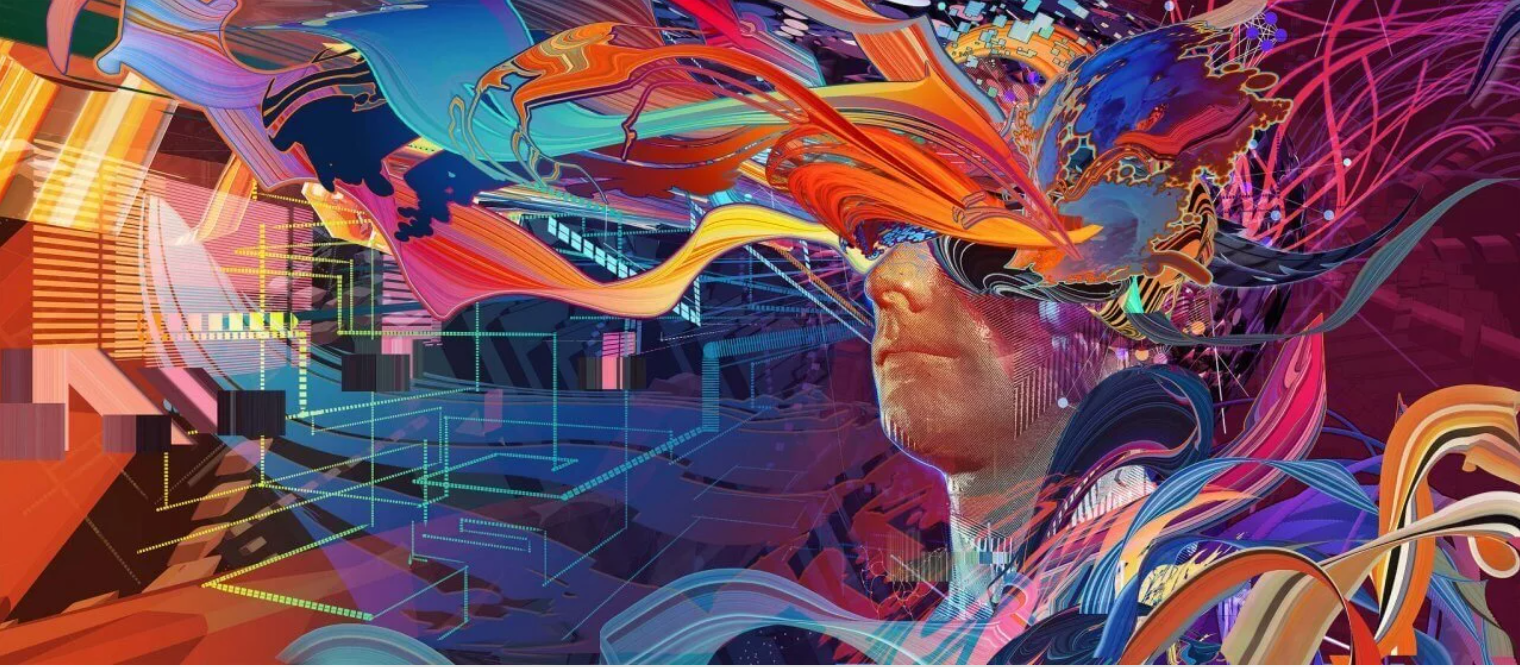some of the projects I have been involved in
image by Jurgis Peters
Bioadaptive media
2025 — present
-
With ubiquitous biosensing we are seeing an emergence of hyperpersonalisation of media based on the most personal inner data of users. Even your smartwatch continuously tracks and categorises your psychological states — would you let it guide your media experiences?
DIAL: Digitally-induced altered states of consciousness
2023 — 2026
-
There is an emerging phenomenon of using new technologies and art to induce Altered States of Consciousness (ASoc) - such as psychedelic VR environments, "digital drugs", and binaural soundscapes. These practices are examples of a larger development of varied integration of technology into all facets of human life and culture. Given the current rate and trajectory of this development, it is not difficult to conceive a future where digital products which bypass contemporary media formats in order to induce Altered States of Consciousness are a commonplace phenomenon.
Although the realisation of digital technologies which induce ASoC is currently in its infancy, a detailed examination of this issue is necessary in order to explore, understand, and anticipate the possible ramifications of digitally-induced ASoC across a range of socio-cultural domains. DIAL researches the possible directions of digitally-induced ASoC and their implications for individuals and society; the research combines anticipatory anthropology with futures research to identify and investigate the social, cultural, legal, and economic antecedents and effects of digitally-induced ASoC.
The primary scientific impact of DIAL is in laying the foundation for the study of an entirely new phenomenon: digitally-induced ASoC; it will create a roadmap for future academic work across a range of disciplines, from HCI to social policy. Furthermore, by examining areas of interest through the lens of futures research, DIAL provides insights that inform the understanding of contemporary issues of note, such as biohacking, digital security, and problematic media consumption. In addition to scientific impact, DIAL will also produce notable societal and cultural impact by allowing policy-makers, regulatory bodies, and NGOs to plan future strategies and educational actions.
DIAL is dedicated to paving the way for a new field of research and its communication with the society. At the core of DIAL is interaction with a wide range of stakeholders, from technology professionals to the general public.
-
Doctoral students
Anatolii Belousov
Terho Ojell-Järventausta
Postdoctoral researchers
Mila Bujić
Joseph Macey
Professor
Juho Hamari
Postemotion
2021 — 2025
-
The need to move human interaction into virtual spaces has been increasing steadily over the years – largely due to the climate crisis, which has forced us to rethink our lives, and recently the pandemic that changed the ways we work, play, and communicate. This digital exodus has gained momentum through developments in VR technology.
Immersive VR and video games provide new affordances of social interaction that may prove more beneficial for collaboration, even compared to face-to-face interaction because games and VR are not limited only to what is “real” but can instead convey richer socio-affective information through e.g. visualizing measured biosignals as biofeedback to the users. Social VR allows for multimodal and multisensory digital representations facilitating meaningful co-existence, interactions, and collaborations. However, although these possible benefits of augmenting social interaction via VR have been hinted at by previous research, we still lack concrete and in-depth knowledge in terms of implementing augmented EA to VR environments in a holistic way by taking into account critical aspects such as embodiment, tactility and various bodily information. Thus, the goal is not only to compensate for the lack of socio-emotional cues but also to complement means of interaction by technological solutions and adaptations.
-
Postdoctoral researchers
Mila Bujić
Simo Järvelä
Bojan Kerous
Zhenxing Li
Professors
Oğuz ‘Oz’ Buruk
Juho Hamari
-
The IMMERSIVE-project examines the use and consumption of virtual technologies and content from the perspectives of users, developers and utilizers. The project focuses especially on questions such as how and why do people use and consume VR/AR/MR media content and how can companies be supported in their utilization and adoption of these technologies. The IMMERSIVE-project examines the multifaceted VR/AR/MR phenomenon with a wide set of methodologies and thus produces rich, effortlessly adaptable knowledge on the topic.
-
Researchers/Doctoral students
Mila Bujić
Henrietta Jylhä
Max Sjöblom
Postdoctoral researchers
Oğuz ‘Oz’ Buruk
Lobna Hassan
Timo Nummenmaa
Mikko Salminen
Professor
Juho Hamari
Immersive
2017 — 2019






